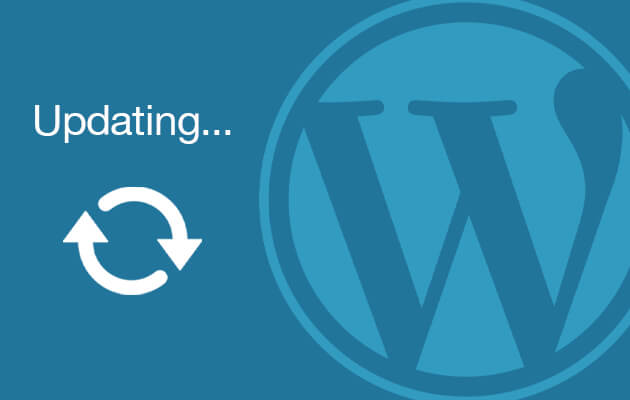
Many people treat a website like a static object that you build once, put into the world and it just works forever, but the reality is that very few things in life work well without some input, changes, or updates. Your car needs maintenance, your house needs maintenance, and, even though it isn’t brick and mortar, your website needs maintenance too.
Much like ignoring the clunking noise in your engine or the loud noises coming from your water heater in the middle of the night, ignoring web maintenance can lead to some nasty problems that many small business owners don’t believe will affect them. If you’re using WordPress to power your website, like around half the websites in the world are, there are WordPress core and plugin updates released on average every 44 days.
Below are five reasons for you to have your website updated to the most recent version each time they release. If you’re already sold on the importance and ready to make those updates, wait! Scroll down to the bottom of this post and be sure you follow the proper steps to do so.
1. Bugs
Ok, these may not be the creepy crawly bugs you might be picturing, but they’re just as frustrating and can be very costly.
With hundreds of thousands of lines of code working in harmony to run your website, it is not a surprise that despite rigorous testing, errors, or bugs, can still make their way through the cracks and cause issues on your website.
In addition to potential bugs in the core of WordPress, plugins, which are usually run by independent groups of developers, can have bugs that are regularly addressed in each new release.
Without these updates, parts of your website can have conflicts, show errors or even stop working altogether.
2. Security
Even though you may have a fairly small local website, security on the web is still a major concern. The important thing to realize is that whether your company is a family business that you run day in and day out or a multinational corporation with offices around the world, when you go online, you are accessible to everyone, everywhere.
This means that people with less than the best intentions can find your website just as easily as your prospective customers. These nefarious individuals often use automated scripts to find your website and attack common vulnerabilities found in older versions of WordPress and its plugins.
Fortunately, because WordPress is the most popular platform to run websites, any potential vulnerabilities are regularly reported and fixed in each version. Keeping your website and plugins up to date will help to keep your website safe from hackers and their malicious attack scripts.
3. Performance
Updating your website isn’t just for security and bugs, but can also improve the performance of your website. Updates can affect website performance because each new version often contains more efficient code. But more effective than more efficient code are the updates that keep your website compatible with the newest versions of each language used to build your website.
Without language updates, your website can quickly fall behind the rest of the web and the standards used by web browsers and search engines.
4. New Features
WordPress has a huge community of developers creating and working on the system every day. With thousands of creative developers using the platform, ideas for improvements abound. After these ideas have gone through the rigorous standards of the WordPress core team, they are released as new features.
If your website isn’t up to date, you could be missing out on new features that will make your content creation workflow a little bit easier. Updating your website and plugins, means you’ll be on the cutting edge of WordPress content management.
5. Compatibility
The web is constantly evolving. You see evidence of this every day, in fact, it was only a few years ago that we had to get onto our home computers to visit a website, now we have access to almost anything in the palm of our hands anywhere, anytime.
Because of the constantly changing nature of the web, new standards in code, browsers, and the devices we access the web on are being released almost daily. If we didn’t update our devices or browsers, we may still be using floppy disks and accessing websites via dial-up.
So, developers have to keep up with these changes by releasing updates regularly. When you update your website, it means that you, too, are keeping your business up to date with these changes.
How to Update your Site
Now you have a sense of why you should keep your website updated, but if you’re going to try to update your site yourself, there are a few things to keep in mind as you go through the process. On a scale of 1 to 10, 10 being you could build your own site, the technical rating on backing up your site is a 7. If the updates don’t play well with one another and something breaks, then you better be at a 9.
Not feeling it? Call us and we we’ll talk website maintenance service plan. With this service plan, we handle all the updates to the WordPress core, and plugins for you so you can focus on building your business without the hassle of website maintenance.
You got this? Read on.
Make a backup of your site files
This may seem counterintuitive since you are updating many of these files, but having a backup ensures that if something goes awry, you will be in a position to restore your corrupted files.
Make a backup of your database
The database is where all of your content and options are stored. If this is corrupted during an update you run the risk of losing everything you’ve worked for.
Turn off caching
Caching makes our site faster and improves the user experience of being on your site by making it load quickly and efficiently, but it can get in the way when it comes to doing updates, so you’ll want to turn off your caching plugins before you do the updates.
If we lost you at backup, give us a call. Whatever path you choose, updating your website is an absolute must.










